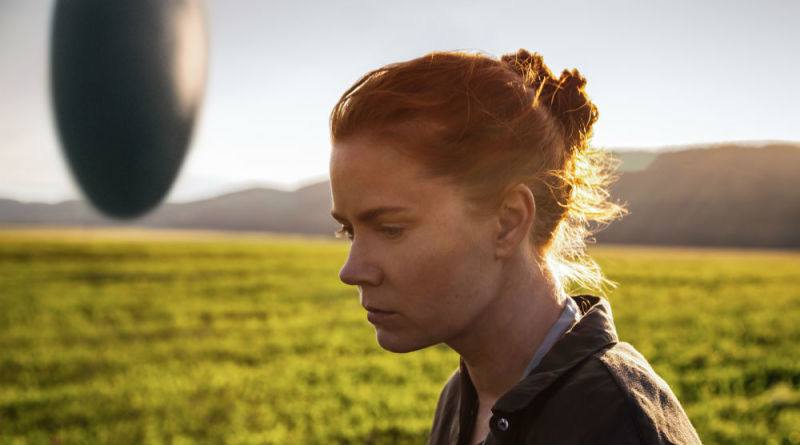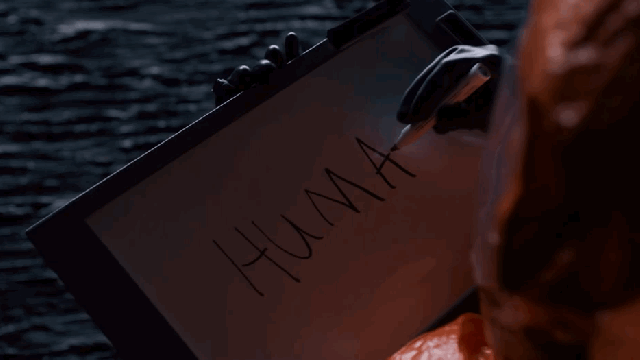If the last week is any indication, America — and by extension, the world — is in for a very weird, fractious four years. The country feels split by lava-filled fault lines and any path forward feels like it’s going to be tough to endure. Good thing a great science fiction movie all about finding ways to talk to alien lifeforms just came out.


On Monday, I went to the movies to escape reality. I’ve been hit hard by the fact that a racist, sexist opportunist will be assuming the highest office in the United States of America. The xenophobic rhetoric Donald Trump used during his campaign — along with the feverish policy possibilities and personnel appointments being floated a week after the US election — make it feel like basic assumptions of the humanity of whole swathes of the American population are going to be thrown out the window. If you’re in one of those swathes, you’re looking at an immediate future where ideological opponents with a legacy of disenfranchisement and marginalisation will have more power to do so.
Arrival is a film about finding a way through hopelessness. Early on in the Denis Villeneuve-directed adaptation of a Ted Chiang short story, alien spacecraft materialise and hover above 12 locations all over the world. Lack of information about who or what may be inside sparks global panic, leading the world’s governments to co-operate in paranoid fashion to share what they learn via separate communication efforts. The military intelligence divisions of the US, China, Russia, Australia and other countries don’t necessarily want to help one another and international tensions run high throughout the entire movie.
The headiest concept in Arrival is the idea that the way we communicate influences how we perceive everything around us. Relationships with individuals and other countries can hang on the usage and interpretation of a single word. In the movie, Amy Adams plays Louise Banks, an expert American linguist who figures out how to talk to the aliens. Midway through the film, she argues that the United States shouldn’t pull out of the tense cooperative because of the multivalent meaning of the word “weapon”. But she loses that fight and hopes for pooled resources and joint progress evaporate. She makes breakthroughs on her own but learns things she shouldn’t know about her own future.
It’d be easy to read Arrival as an anodyne panacea about learning to communicate with bizarre foreign cultures and finding common ground. But I’m not choosing to do so. My own interpretation is something thornier and bittersweet. Banks’ heroism comes from facing an inflection point that tasks her to commit to two daunting tasks in her life. She has to simultaneously hold the knowledge of a great, guaranteed sorrow on the horizon and find joy in the moments leading up to that sorrow. Arrival doesn’t have a happy “we’re all getting along” ending. Yes, a greater good will supposedly be achieved by her personal loss, but it’s so far off and ambiguously defined that it’s not entirely clear if her sacrifice was even necessary. For me, Arrival is about finding the resolve to soldier through experiences that you know will hollow you out. It’s a reminder that everyone suffers loss in life but the triumph is found in how you respond.
